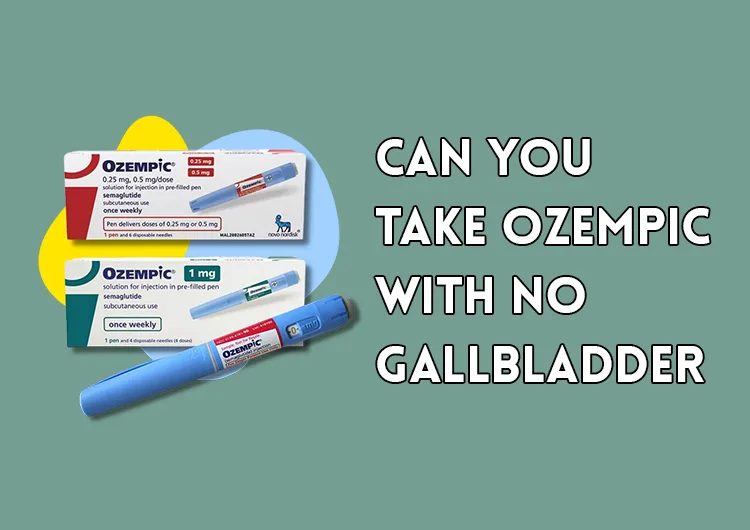Studies of similar drugs to Ozempic have shown they can increase gallbladder health issues, specifically acute gallbladder disease (cholecystitis). Furthermore, taking it without having a functioning gallbladder can cause digestive problems like nausea and vomiting.
Less serious side effects may include diarrhea, stomach pain, constipation, and reduced appetite – these side effects may be worse when first beginning medication use.
What is Ozempic?
Ozempic is an oral medication prescribed to individuals suffering from type-2 diabetes. As part of its class of GLP-1 receptor agonist medications, it works by increasing insulin production, decreasing liver-produced glucose amounts, and slowing stomach emptying time – ultimately helping individuals manage their condition more effectively and reduce blood sugar levels while increasing glycemic control. Studies have proven its efficacy in helping lower blood sugar levels and improve glycemic control in those living with this form of the condition.
Even though the drug has been shown to be safe and effective for treating gallbladder removal patients, there may still be potential side effects, including
nausea and diarrhea. If either occurs, it is important to remain hydrated with plenty of liquids to avoid dehydration.
Furthermore, individuals without gallbladders may encounter difficulties digesting fat due to the lack of an organ to store bile. Even though bile still flows from liver into the small intestine, its concentration may not be as concentrated without gallbladder storage space, and this may lead to difficulty digesting fatty foods, leading to abdominal discomfort or nausea.
How Does Ozempic Work?
Ozempic works by slowing the movement of food through the stomach. This allows users to reduce blood sugar levels after meals by preventing excess absorption of glucose while improving symptoms like nausea, vomiting, and diarrhea. Ozempic may also help improve gastrointestinal symptoms such as nausea, vomiting, and diarrhea, in addition to improving general GI symptoms like nausea, vomiting, diarrhea, etc. However, in certain instances, individuals taking Ozempic may require gallbladder surgery due to complications related to taking it (for instance, gallstones or a disease known as cholecystitis), while studies have linked Ozempic to developing thyroid tumors, including cancer in rodents taking this drug!
Most individuals who have undergone gallbladder removal (cholecystectomy) can safely utilize Ozempic. However, patients must follow specific guidelines in order to minimize stomach side effects and ensure effective absorption. These include eating smaller meals more frequently during the day while avoiding fatty foods and drinking plenty of water – mild side effects usually resolve within days or weeks of using the drug.
Can I Take Ozempic After Gallbladder Removal?
Ozempic offers appetite-suppressing properties and improved glucose control to patients without gallbladders, providing appetite control as well as better glucose regulation. However, those without one should abide by any advice from healthcare providers regarding dosage or potential side effects.
Once a cholecystectomy takes place, bile continues to be produced by the liver but without an appropriate place for its storage between meals, leading to more frequent releases into the small intestine and potentially leading to nausea and diarrhea. Furthermore, fat digestion becomes compromised without its storage in a gallbladder, and digestive enzymes might be prescribed in order to facilitate diet changes and maximize nutrient absorption post-gallbladder removal.
Gallbladder issues caused by Ozempic can have severe financial repercussions, ranging from expensive medical bills and income losses, missed work with
consequent income loss, and even death. Such intangible losses may qualify as legal damages worthy of compensation under a lawsuit; speak to an Ozempic attorney about seeking legal damages for your injuries – they have the experience and dedication needed to win your case!
What are the Side Effects of Ozempic?
Ozempic may cause side effects that irritate both your stomach and digestive tract, including nausea, vomiting, diarrhea, abdominal pain, and discomfort – sometimes, these reactions can become so severe as to render treatment ineffective altogether.
The FDA’s official medication label indicates that 1.5% and 0.4% of 0.5mg and 1mg Ozempic-treated patients during clinical trials experienced gallstones, small stones that form within the gallbladder and may form into blocks within its tubes, leading to organ inflammation known as cholecystitis.
Ozempic has also been linked with thyroid tumors and cancer in some patients; those suffering from these conditions should avoid taking this drug. Furthermore, those with kidney issues should use Ozempic with caution as it has been associated with decreased kidney function due to fluid loss caused by diarrhea and vomiting, leading to dehydration.
